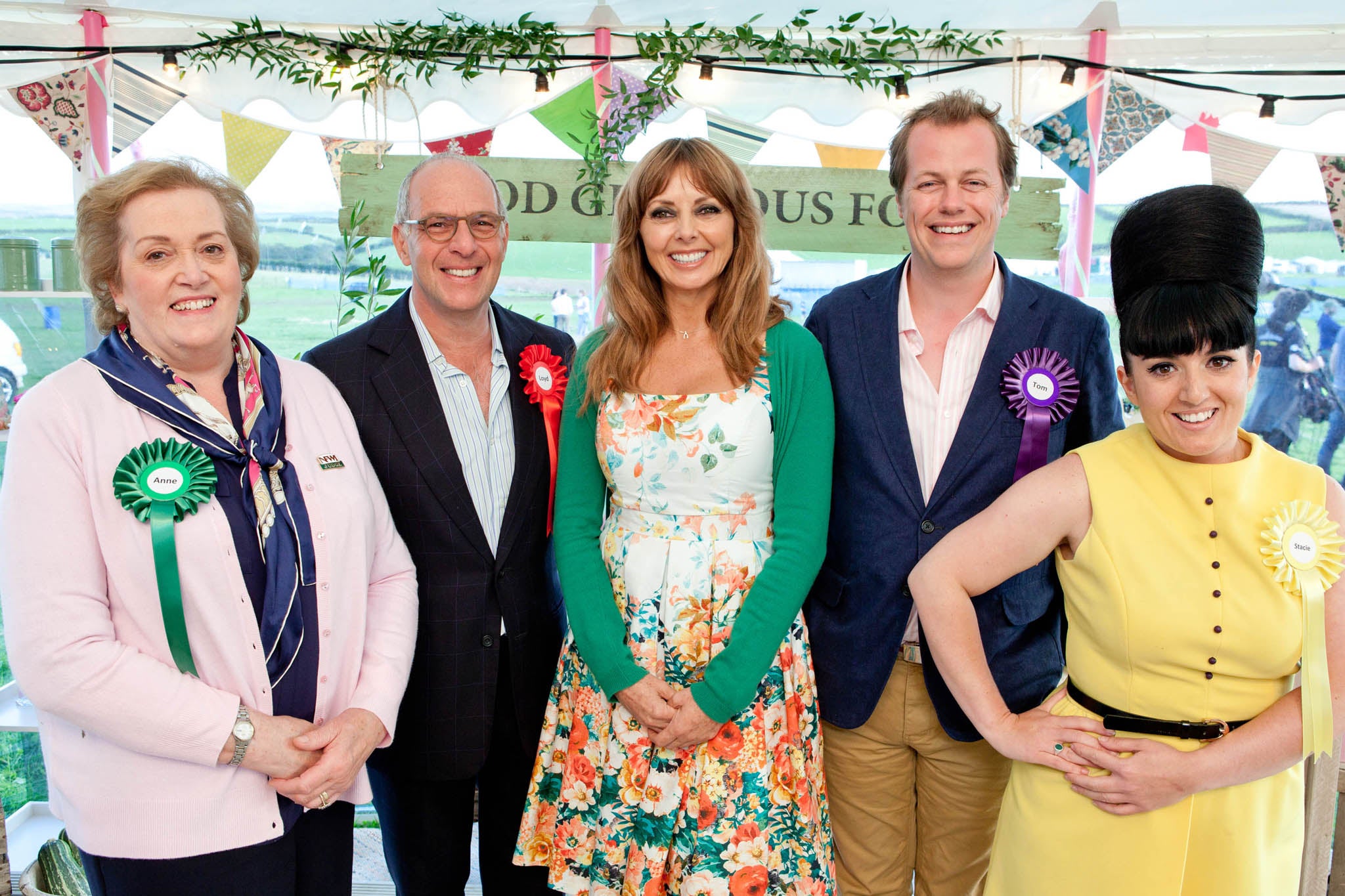TV review: Lightfields, ITV Food Glorious Food, ITV

Your support helps us to tell the story
From reproductive rights to climate change to Big Tech, The Independent is on the ground when the story is developing. Whether it's investigating the financials of Elon Musk's pro-Trump PAC or producing our latest documentary, 'The A Word', which shines a light on the American women fighting for reproductive rights, we know how important it is to parse out the facts from the messaging.
At such a critical moment in US history, we need reporters on the ground. Your donation allows us to keep sending journalists to speak to both sides of the story.
The Independent is trusted by Americans across the entire political spectrum. And unlike many other quality news outlets, we choose not to lock Americans out of our reporting and analysis with paywalls. We believe quality journalism should be available to everyone, paid for by those who can afford it.
Your support makes all the difference."It's all right... it's just a bird," Vivien says to her daughter Clare when a large raven clatters out of the fireplace at Lightfields farm. "No it isn't," we think at home. It is a sable-feathered harbinger of dread, and the first crumb in a cascade of the uncanny that is about to fall about your ears. Oh and Clare, when your Mum said, "There were squatters here once, but they got scared off", well, I don't think it was a sternly worded legal letter that had them scrambling for the door. We've got the soundtrack to help us, of course, signalling the moments at which an empty room suddenly becomes pregnant with menace. That and one of those triple-layered time schemes that is now pretty much a guarantee of unquiet history and unlaid ghosts.
Time scheme one is 1944, when the occupants of Lightfields are the Felwoods, including young Lucy and her wayward friend Eve, who's come up from London to escape the flying bombs and lead Lucy astray. Time scheme two is 1975 when Eve's sister Vivien returns to the village she visited as a child to see whether she can get a novel written. And time scheme three is 2012, as Lucy's younger brother Pip, now an elderly man, arrives to spend some time with his son and daughter and great-grandson.
It goes without saying that Something Horrible Has Happened, leaving behind a perturbation in the aether and bedroom doors that tend to fly open of their own accord. There is – and this would be a deal-breaker for me as far as any rental arrangement went – a ghostly whisper that steadily counts upwards, as if playing hide-and-seek. And there are sudden apparitions, currently limiting themselves to that indeterminate did-I-see-it-or-was-it-my-imagination effect. All the usual gothic conveniences, in other words.
But what there also is, which you don't always get, is an unexpected sense of density to the unhaunted life on show. Simon Tyrrell's script feels unusually solid in the gaps between the bits that you're not really expected to believe at all, which helps to make the spookery a bit more unsettling. Don't get me wrong. It's not Chekhov exactly, but you're not simply sitting there waiting for the next floorboard to creak ominously. There are things flickering in between the characters that are entirely of this world and that you sense may actually turn out to be more interesting than the bumps in the night.
Food Glorious Food is a kind of X Factor for recipes, specifically hunting for a home-cooked dish that will eventually receive the oxymoronic tribute of being turned into a Marks & Spencer ready meal, so that you don't actually have to cook at home to eat it. As in The X Factor, there are the early-round no-hopers to offer a bit of comic relief, in this case a wartime dish called Sausages in Milk, which was so hideous to look at that its proposer made the judge wear a blindfold before tasting it. Despite that, she correctly identified it as sausages in spiced wallpaper paste, and declined to put it through.
You wonder a little about the provenance of the finalists, since they display the kind of perfectly judged blend of family history, heart-warming backstory and eccentricity (the woman who cooked pheasant paprikash prepared her fermented cabbage by treading it with her bare feet) that you wouldn't expect a random selection to turn up. But apart from the usual mind-numbing bulk-filler of repeated information after every advertising break, and the traditional sprinkling of pointless intensifiers ("It would just mean the world to me to win"), the programme isn't bad, honouring the kind of dishes that rarely get much attention. They're edible folk tunes really. And, yes, I fully understand how ambivalent that description may seem to some of you.
Join our commenting forum
Join thought-provoking conversations, follow other Independent readers and see their replies
Comments